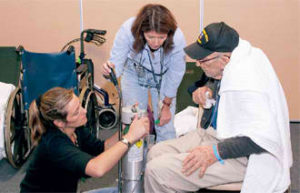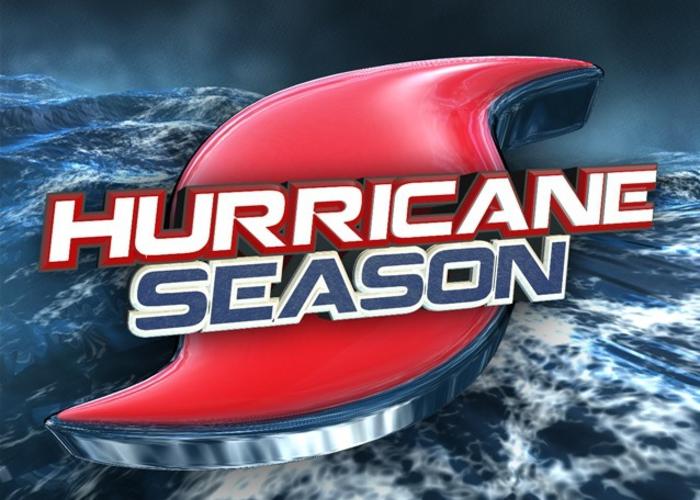
Part of hurricane preparedness is knowing how to access a special needs shelter.
Floridians think about hurricane preparedness from June 1 through November 30 each year. Special news casts alert residents to the need for survival kits. Each named storm puts a new set of communities in its path on alert for floods, winds and storm warnings. We are inundated with pamphlets and newspaper inserts about just how to get ready for the “next big one.” However, there is little in this flurry of information about what elders or people with disabilities should do to prepare.
Home health care or home-bound patients:
For those residents who are home-bound or receiving home health care, hurricane preparedness requires several steps in addition to regular hurricane readiness:
- Prepare a plan in advance to accommodate your specific needs. Make sure your family and caregivers know the plan and can assist you.
- Notify the health agency where you will be during a disaster and when care can be re-established (if you know).
- If you are home-bound and under the care of a physician, but not a home health agency, contact your physician.
- If you are home-bound, contact your local special needs shelter or your local authorities to let them know you will need assistance with evacuation during the hurricane or other disaster.
- Prepare a folder of your important papers including your durable power of attorney, health care surrogate designation, living will, trust documents, identification, insurance cards, credit card, Medicare card, Medicaid card, etc.
- If you require respirators or other electric-dependent medical equipment, you should make prior medical arrangements with your physician and health care providers.
- If you require oxygen, check with your supplier about emergency plans. Be sure to have mobile back-up equipment.
- Have a one-month supply of all medications on hand. Keep a list of all current medications and dosages with you at all times.
- If you evacuate, remember to take medications, written instructions regarding your care, special equipment and necessary bedding with you.
- If you need assistance in an evacuation, please register NOW with your county emergency management agency. For information about all shelters, including special needs shelters, visit FloridaDisaster.org.
Information for the Elderly and Citizens with Special Needs Who Are Not at Home:
If you live in a nursing home, assisted living facility or other congregate living arrangement, you still need to be prepared for hurricane season. Here are some important steps you and your family need to take:
- If you or a loved one live in a nursing home or assisted living facility, contact the administrator and ask for the facility’s hurricane preparedness and/or evacuation plan. Be familiar with that plan.
- If you will be taking your loved one from the nursing home or assisted living facility during a hurricane or other disaster, let the facility know your plan. Have a plan for caring for your loved one once you have removed him/her from the facility.
- If you require respirators, oxygen, or other electric medical equipment at the facility, know how those will be maintained at the facility during a hurricane or other disaster. Many facilities have generators and other back-up options.
- If you or your loved one needs transportation or specialized assistance during an evacuation, be sure the facility is able to provide that. If not, be sure to REGISTER NOW with the county emergency management agency.
- If you or a loved one is being evacuated from a nursing home or assisted living facility or other congregate living arrangements, be sure to REGISTER NOW for the local special needs shelter.
- If you or your loved one are evacuating and under the care of a physician, please notify your physician of your new location.
In recent years, Florida has been lucky. It has been spared devastating hurricanes and tropical disasters. However, such luck is always limited. When a hurricane strikes, we must be ready not only to help ourselves, but our elderly loved ones and our neighbors with special needs.
We all know someone who is caring for an elderly parent or a child with a disability. We can help those families by passing on information about Florida’s special needs hurricane shelters, steps to take for advanced registration for those shelters, or where to go for information.
For more information visit:
Federal Emergency Management Agency
American Red Cross North Florida Chapter
Florida Special Needs Shelter Information by County
City of Tallahassee Assisting The Disabled During a Disaster


